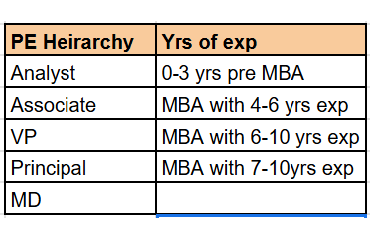
If you’ve ever sat across a coffee table wondering how some professionals leapfrog into seven-figure salaries within a few years, chances are you’ve heard about management consulting. And if there’s one city in India that feels like the heartbeat of this industry, it’s Mumbai. This city isn’t just the financial capital, it's the place where consulting firms shape boardroom strategies for multinationals, where start-ups turn into unicorns, and where your career trajectory can change overnight if you play your cards right.
But what’s really behind the high-paying tag? And why are people like you and me drawn toward it? Let’s unpack this step by step.
Why Are Management Consulting Roles in Mumbai Considered High-Paying?
First, it’s the demand. Mumbai is home to India’s largest corporations Reliance, Tata, Aditya Birla, and a dozen global banks parked in BKC. All these companies want someone to answer their toughest questions: “How do we cut costs without losing customers?” “What’s our digital strategy for the next decade?” Consultants step in with frameworks, data, and outside perspectives that executives are willing to pay a premium for.
Second, there’s geography. While Bangalore might dominate IT salaries, Mumbai commands consulting pay because of its concentration of headquarters. You’d find that McKinsey’s Mumbai office is buzzing with cross-border projects while Bain teams could be flying out to Singapore or Dubai on short notice. The pay reflects both the work intensity and the international exposure.
And let’s be honest, the lifestyle cost here isn’t exactly forgiving. Rents in South Bombay or even Powai eat into your paycheck. Firms know this, so they pay more to retain talent.
What Do Consulting Firms in Mumbai Actually Look For?
This is where many get it wrong. It’s not just about topping your MBA class or throwing in a few buzzwords like “strategy” and “innovation.” What they’re actually looking for is clarity of thought. Can you break a complex business problem into smaller, solvable parts?
They’ll test you on this during case interviews. You might be asked: “A cement company wants to enter Eastern India. What’s your plan?” You’ll need to show logical structure, not just creativity.
Educationally, most recruits come from IIMs, ISB, IITs, and sometimes foreign schools like INSEAD or LBS. But here’s the twist: you don’t always need a marquee brand. Some Indian firms (like Avalon or Praxis) hire candidates with solid corporate strategy experience. If you’ve worked in operations, finance, or digital transformation, you’re in the running.
Soft skills matter equally. Can you tell a story with data? Can you hold a room with your presentation? Because half your job is convincing a CEO to trust your slide deck.
Which Companies in Mumbai Offer the Top Management Consulting Packages?
Let’s name names. The “Big 3” McKinsey, Bain, and BCG are the crown jewels. A fresh MBA here can expect ₹25–35 lakh per annum, and partners earn in crores. Then there’s the “Big 4” Deloitte, PwC, EY, KPMG. Their pay is slightly lower, but they offer wider exposure across industries.
Don’t sleep on Indian firms though. Tata Strategic Management Group works closely with group companies; Avalon Consulting specializes in market entry; Praxis Global Alliance has built a reputation with start-ups. These roles often pay in the ₹15–25 lakh range at entry level, which is nothing to scoff at.
And if you’re exploring platforms, Aplus Hub is one place that’s listing roles not just in consulting but adjacent fields like tech leadership. For example, a recent listing was for a Senior Software Engineer in Global Payroll with Rippling in Bangalore. Why mention this? Because consulting skills often overlap with tech strategy roles problem solving, process design, data analysis. That’s how someone with consulting chops can transition into tech management or vice versa.
Where Do Salaries for Management Consultants in Mumbai Stand?
Let’s break it down:
-
Fresh MBA hires: ₹22–35 lakh (depending on firm and role)
-
Mid-level managers: ₹40–70 lakh
-
Partners/Directors: ₹1 crore+
But here’s the kicker: salary is only half the story. Firms invest in training programs that could cost lakhs if you paid for them yourself. You also get exposure to international projects, travel allowances, and sometimes even housing assistance.
Compare this to IT roles where you may start with ₹8–15 lakh post-MBA. The gap is obvious. That’s why consulting attracts ambitious graduates despite the grueling workload.
How Can You Actually Land One of These Roles?
This is where most aspirants stumble. It’s not enough to just want the paycheck. You need a game plan.
Start with networking. Consultants often recommend others, and referrals go a long way. LinkedIn isn’t just a resume park it’s your personal PR machine. Share insights, connect with alumni, and engage in meaningful conversations.
Second, case prep is non-negotiable. Websites like PrepLounge or resources like Case in Point by Marc Cosentino are practically bibles. Practicing 50+ cases with peers makes you sharper.
Third, explore professional hubs. Platforms like Aplus Hub curate jobs where consulting experience gives you an edge, even if the role isn’t traditional consulting. Imagine applying for a strategy manager role in fintech suddenly your case-solving skill makes you stand out.
And yes, non-IIM folks can make it. I know a story of a Mumbai University grad who cracked into Deloitte’s consulting arm after two years in corporate finance. Persistence and networking beat pedigree sometimes.
When Does a Consulting Role Make Sense for You?
Not everyone should chase it. Let’s be real. Consulting demands brutal hours often 60–80 per week. You’ll be flying Monday to Thursday, living out of hotels, and catching red-eye flights. If your priority is work-life balance, it’s not the best fit.
But if you value rapid learning and career acceleration, it’s unmatched. Consulting compresses a decade of experience into 3–4 years. That’s why so many use it as a launchpad into startups, private equity, or corporate leadership.
So ask yourself do you want money, or do you want momentum? Sometimes they overlap, sometimes they don’t.
What Are the Growth Paths After Consulting in Mumbai?
Here’s the beauty of consulting. The exit options are gold-plated. Many go into venture capital or private equity. Some jump into CXO roles in Fortune 500 companies. Others launch start-ups with the confidence that comes from working across industries.
In Mumbai, you’ll see ex-consultants running everything from fintech unicorns to sustainability ventures. That’s because consulting gives you two priceless assets: networks and credibility.
Conclusion
So, what’s the verdict? Consulting in Mumbai pays handsomely, no doubt. But it’s not just about the paycheck. It’s about sharpening your mind, expanding your network, and building a career foundation that can pivot in multiple directions.
If you’re serious, start preparing today, connect with peers, polish your case skills, and keep an eye on platforms like Aplus Hub that bring opportunities you may not have even considered. Who knows, the next big consulting paycheck in Mumbai could have your name on it.
Don’t stress about searching every career page or job site. Stay ahead with the latest opportunities from different sources right here!
Related Articles
You've gone through an education system that probably never taught you anything about professionalism, logical deconstruction, and comfort with ambiguity. You may have tremendous bookish knowledge, but lacking these three attributes is an immediate invisible red flag that will stop you from getting the job or the promotion you always wanted.
Let's throw some light on the top-5 common mistakes that highlight your lack of these attributes, and what you should be doing instead
- Showing up late without informing your interviewer/coordinator - there are genuine reasons one could be running late, but that needs to be duly communicated ahead of the planned interaction. Inform every marked on an invite, drop a text or give a call, but keep your stakeholders informed. Their time is as much valuable as yours.
- Turning up unprepared for the interview - if you are turning up unprepared, why is it that you are turning up at all? why waste your and interviewer's time? You are better off declining the opportunity, instead of ruining your reputation unnecessarily. You must invest 1 hour to read about the company, the opportunity, some information in the public domain and so on, if you have chosen to show up for an interview.
- Going silent instead of communicating effectively with your stakeholders - it might come as an insight but everyone knows you would evaluate multiple opportunities before chosing one, everyone knows that your decision might be influenced by your loved ones, and everyone is okay with your being unsure, but nobody likes to be left wondering about what might be happening. So, good, bad or ugly, communicate, communicate and communicate! You'll build more relationships that you ever thought, and you never know, one or more of these relationships may turn gold in the times to come.
- Rambling stuff that does not make sense - let us fill you in on another secret, nobody - not even the most successful individuals can know everything about everything in the world. So, when presented with topics/questions you have no clue about, you got to either draw parallels from what you have expertise on, rationally break down the information you are presented with to come up with simple yet logical answers, or admit you do not know anything about this but can talk about something relevant to the opportunity being discussed in detail.
- Demanding a bomb without a concrete rationale - the whole world is underpaid, friends! who doesn't want more, but that's not how it works. Your next compensation cannot ignore your current and/or previous compensations. If you chose to take a sabbatical, took an opportunity by taking a haircut, or become an entrepreneur that eventually did not work out, you have to make peace with your decision. Nobody else had a say in that! You can definitely demonstrate additional skills/knowledge that you acquired during this period (that surely has a value), but that value isn't the only figure on which your next compensation will be decided on. So, learn about the market standards and try to limit your ask within the broadly acceptable range.
Let’s be honest — job hunting today feels like swiping right on a dating app where no one ever replies. Employers can’t find the right talent, job seekers chase ghost listings, and somewhere between “We’ll get back to you” and “Position closed,” everyone loses their sanity.
Enter Aplushub — the career saver we didn’t know we needed.
Why Aplushub Exists
Born from the chaos of the modern job market, Aplushub was built on one bold idea — quality over quantity. It’s not just another job portal flooding you with random roles. It’s a curated ecosystem that blends AI precision with human insight to filter out the clutter and keep only what truly matters: authentic, relevant, and verified opportunities.
What It’s Solving
Aplushub is tackling the biggest pain in job search — noise. Fake jobs, expired links, spam recruiters, and endless scrolling are replaced by clean, credible listings. The platform categorizes openings into Free Jobs (posted directly by employers) and Premium Jobs (handpicked by Aplushub’s research team from trusted sources and networks). So, no more digital wild goose chases — only jobs worth your time.
Remote Jobs? Absolutely.
Whether you’re working from your couch in Chennai or a café in Manali, Aplushub’s got you covered. The platform features a dedicated Remote Jobs section — tailored for professionals who value flexibility. It connects you with employers who believe talent shouldn’t be tied to geography.
Why It’s a Win-Win
For job seekers, Aplushub is your career compass — one dashboard, hundreds of genuine opportunities, and no shady “DM for job” drama.
For employers, it’s a hidden gem. Posting is free, candidate access is simple, and you get applicants who are genuinely interested — not bots in disguise.
Bonus Perk: The *OpenBook* Advantage
Here’s where Aplushub really flips the script — OpenBook, its transparency-first feature. It gives job seekers a peek into real hiring insights, company trends, and recruiter updates, turning job search into a smarter, more informed experience. No more guessing what employers want; OpenBook hands you the inside scoop to make data-backed career moves.
The Price Tag (Spoiler: It’s Almost Free)
Aplushub keeps things real and affordable. You can explore its free tier, test-drive premium access with ₹50/Month, or go all in with ₹499 for a full year— basically less than your monthly coffee budget to land your next big opportunity.
So whether you’re hiring, hunting, or just tired of the chaos — Aplushub is here to bring sanity (and a smile) back to your career journey.
👉 Visit AplusHub.com — where jobs finally make sense.
Private Equity (PE) is one of the most coveted industries in finance. One of the highest paying industries, Private Equity (PE) attracts absolute creme-de-la-creme of MBA graduates, management consultants, and investment bankers. Also highly competitive, PE funds hire only a handful of investment professionals across levels in a year.
A+ research team has spoken to multiple PE professionals across domestic and global PE funds in India. In the table below, we have compiled average base compensation, variable (bonus) and carry components at blue chip global PE funds in India.
| Role | Yrs of exp | Large Global PE Funds (base salary) | Bonus (as a % of base) | Carry | |
| Analyst | 0-3 yrs pre MBA | $60K-$80K | 60-100% |
Notional Carry or LTI or Certain bonus is paid in the form of carry distribution in case of multi-billion dollar funds*
|
|
| Associate | MBA with 4-6 yrs exp | $100K-$150K | 80-100% | ||
| VP | MBA with 6-10 yrs exp | $200K- $250K | 90-120% |
Estimated 0.5%-2% of the carry pool for a multi billion dollar fund*
|
|
| Principal | MBA with 7-10yrs exp | $300K-$400K | 90-120% | ||
| MD | $500K+ | 100-150% | |||
| Notes: |
These figures are estimates of salaries at top global PE funds like Bain, Carlyle, TPG, Warburg Pincus, General Atlantic and the likes
|
||||
|
Buyout focused funds have 30-50% higher base salaires and respective bonuses
|
|||||
|
*These are estimates from the information gathered through our network; might change/vary with more data
|
|||||




